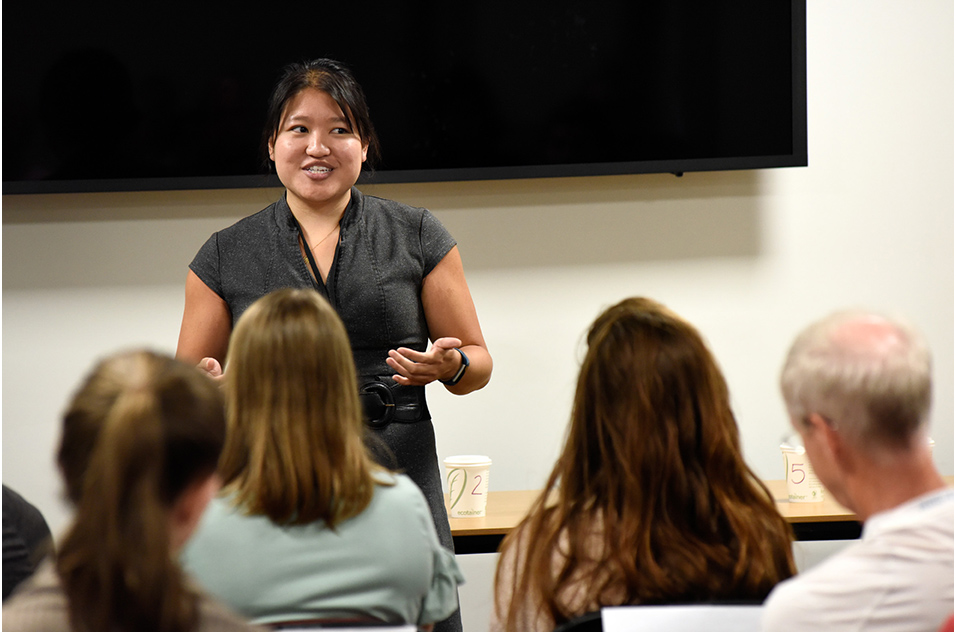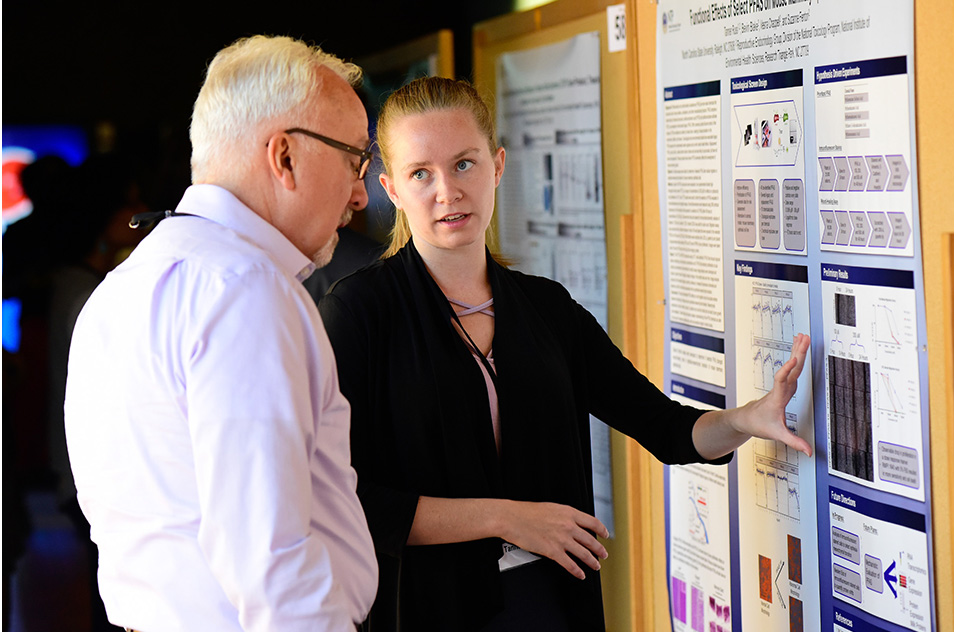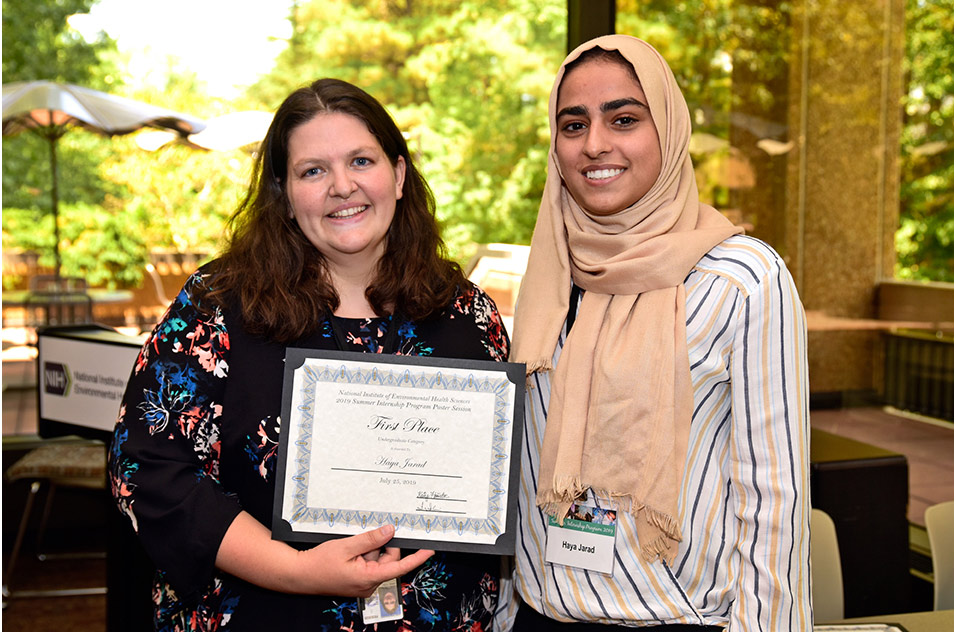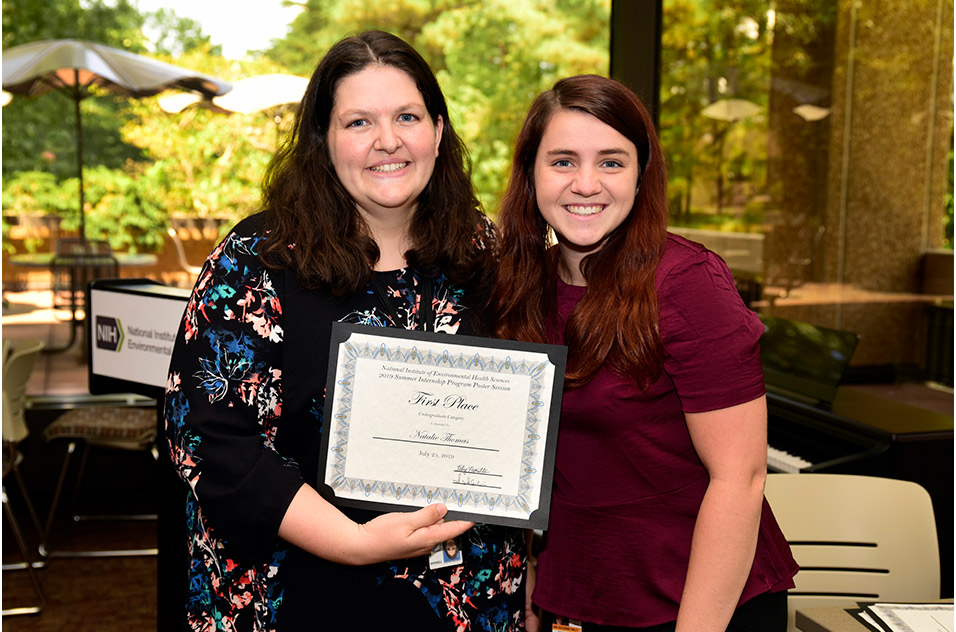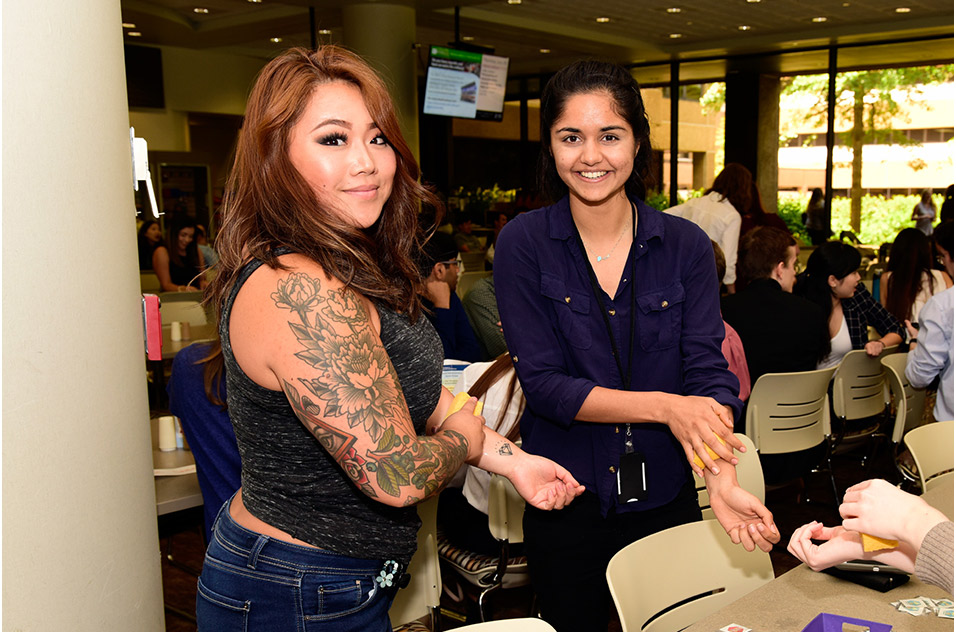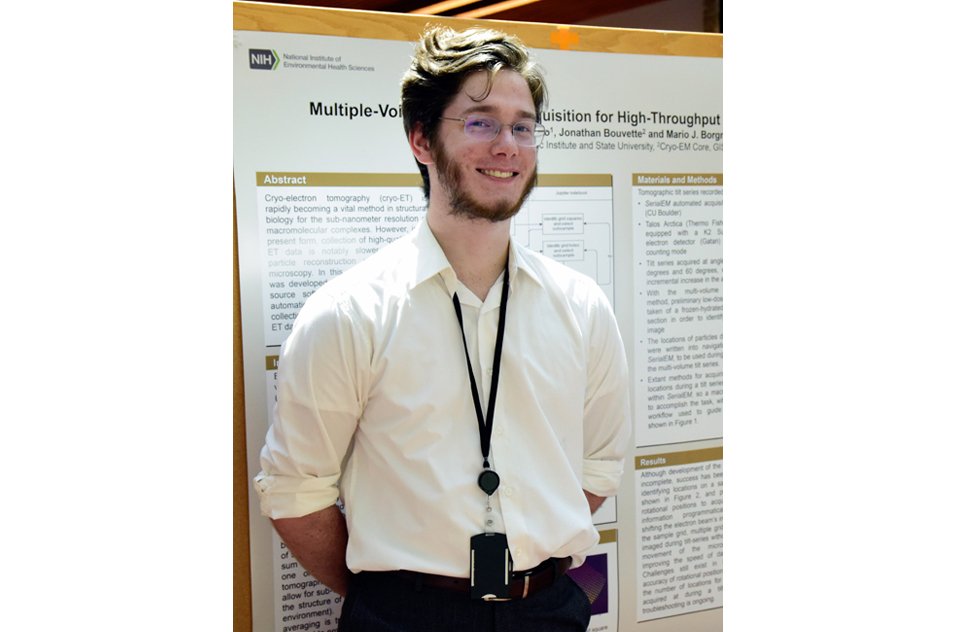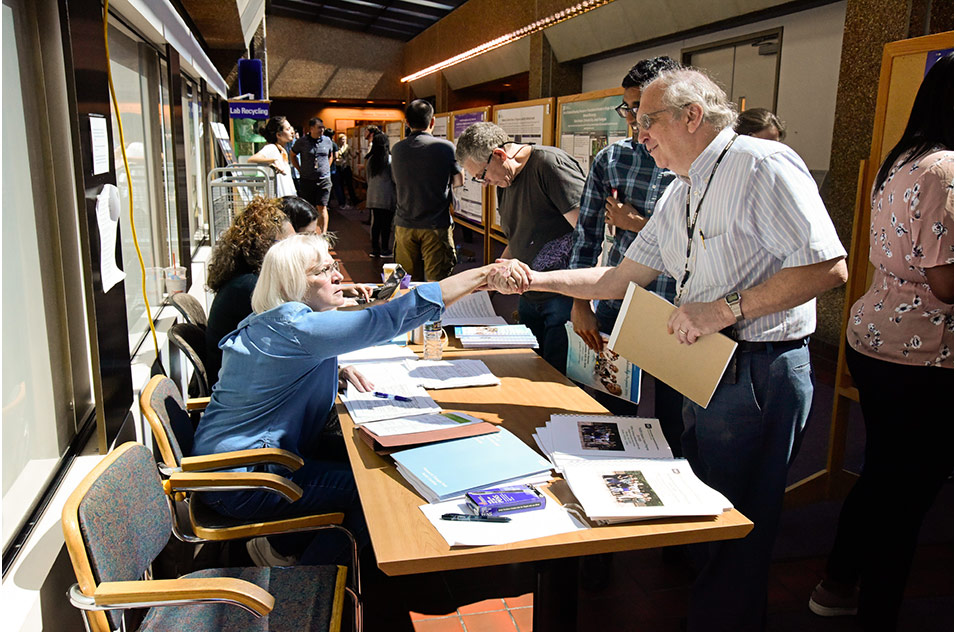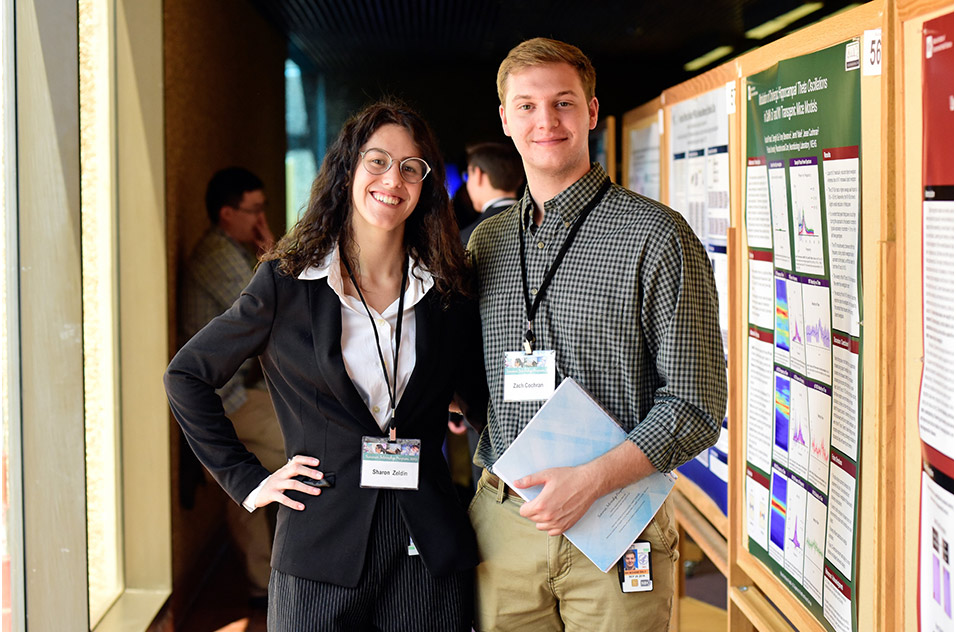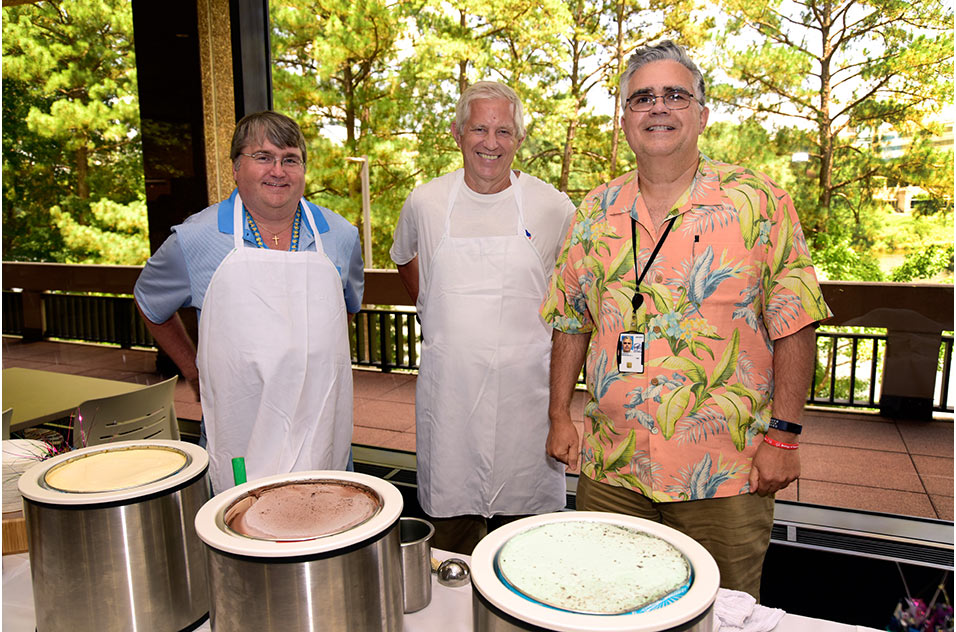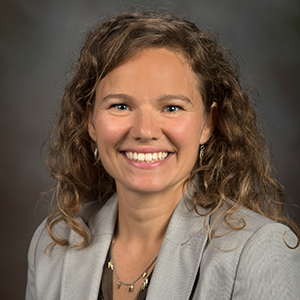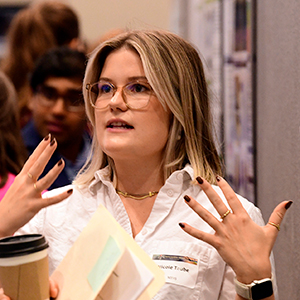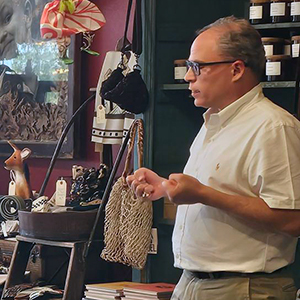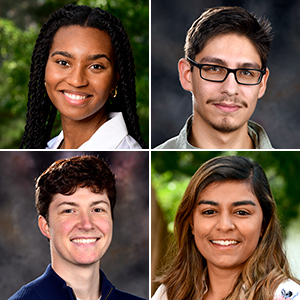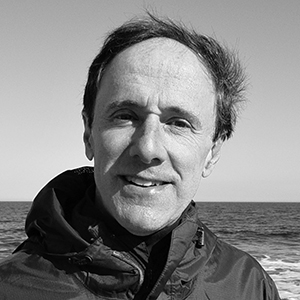Undergraduate and graduate students with summer internships at NIEHS do far more than work in the lab. One of the scientific skills they have ample opportunity to develop is communicating research.
Nearly all participated in the Summer Poster session on July 25, explaining their projects and results. A dozen of the 75 interns took the stage July 16 in the 'Summer Interns 3-minute Communication Challenge'. This was the first year they were judged by the audience instead of a panel of volunteers.
“We believe that communicating your science to a broad audience is an absolutely essential skill to have,” said Katy Hamilton, when she kicked off the series of brief talks. Hamilton is from the NIEHS Office of Fellows Career Development, which backs up its priorities by sponsoring these and other activities during the summer.
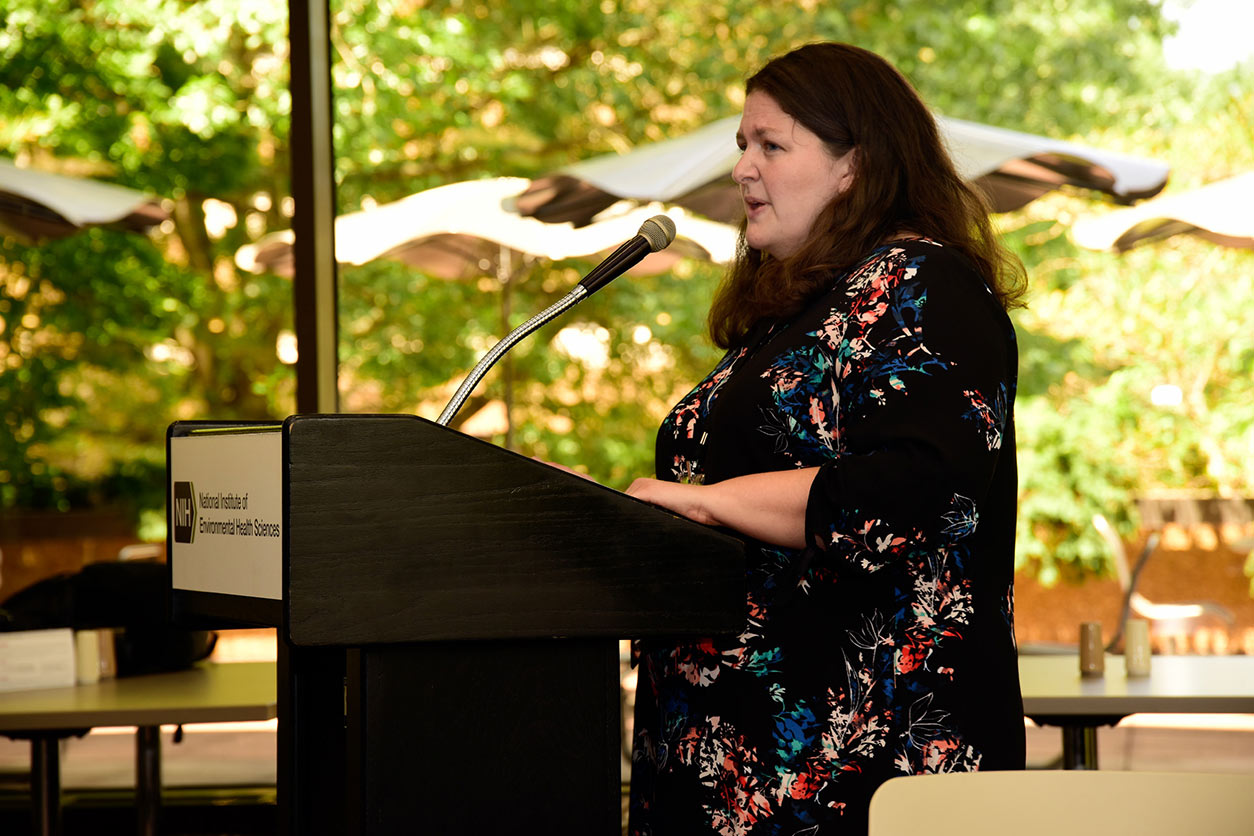 Hamilton presented poster awards to summer interns during the ice cream social provided by mentors after the exhibit. (Photo courtesy of Steve McCaw)
Hamilton presented poster awards to summer interns during the ice cream social provided by mentors after the exhibit. (Photo courtesy of Steve McCaw)Tools include clarity and metaphor
Audience members voted Emma Garval, from Scripps College, the hands-down winner of the challenge. Using the tools of organization, clarity, and compelling message, she described her research on epigenetic clocks. “These clocks are really interesting because they are strongly related to risk of dying, even more so than actual age,” she said.
Garval explained how she used data from almost 2,000 women to study connections between obesity and changes to chemical tags on DNA, or epigenetic changes. “I found that yes, obesity impacts aging, in that the obese women were aging significantly faster.” Her mentors were Jack Taylor, M.D., Ph.D., and Jacob Kresovich, Ph.D., in the Epidemiology Branch.
Tied for second place were Vennela Avula, from the University of North Carolina at Chapel Hill (UNC), and Caitlin Mehta, from Elon University.
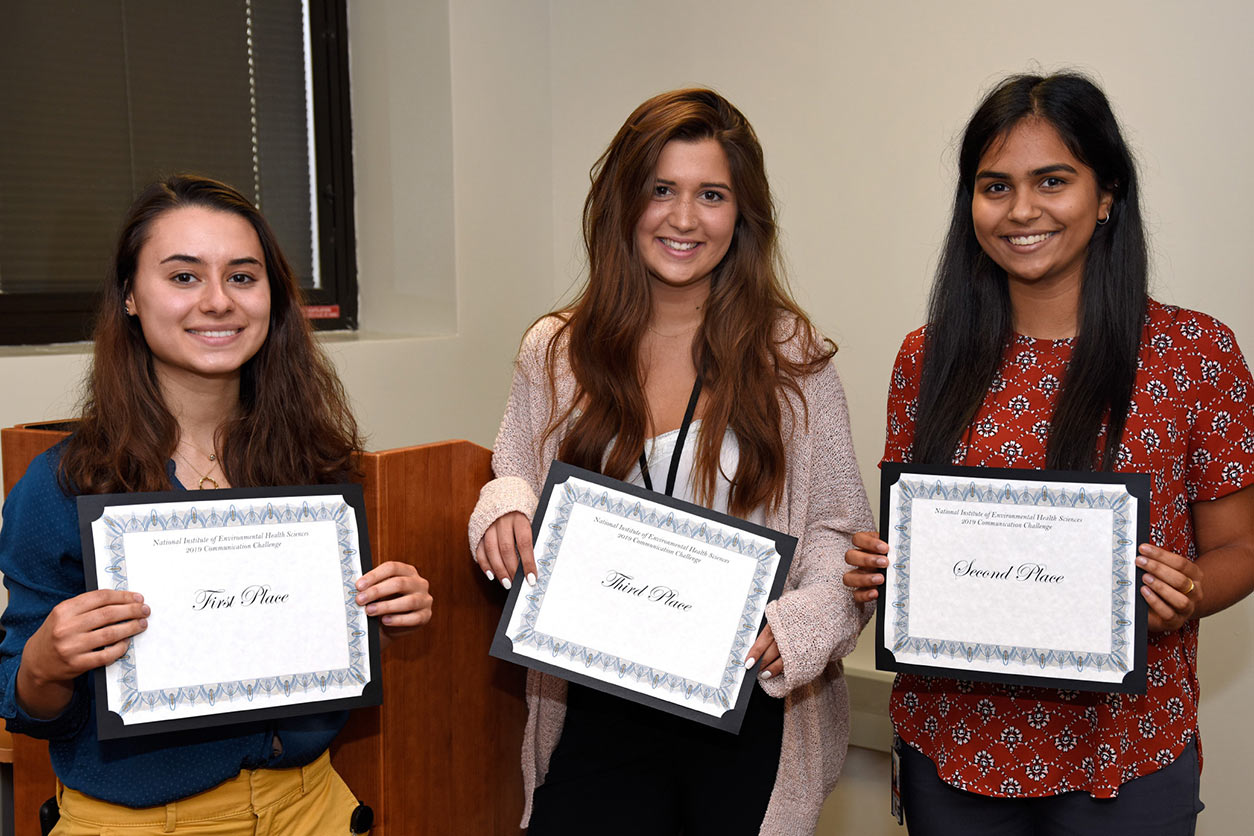 From left, Garval won first place in the 3-minute talk challenge. Mehta and Avula tied for second. (Photo courtesy of Steve McCaw)
From left, Garval won first place in the 3-minute talk challenge. Mehta and Avula tied for second. (Photo courtesy of Steve McCaw)Avula wanted to learn why individuals with cancer respond differently to the same drug treatment. Although she observed variations in gene expression among cells exposed to the same drugs, she was not able to fully answer her questions.
“I found that science is often unfinished,” Avula concluded. “One should be driven by curiosity and innovation, rather than by hopes for new discoveries.” She worked with Trevor Archer, Ph.D., and Jackson Hoffman, Ph.D. in the Epigenetics and Stem Cell Biology Laboratory.
A sneaker provided the metaphor for Mehta to describe her diabetes research with Anton Jetten, Ph.D. and David Scoville, Ph.D., in the Immunity, Inflammation, and Disease Laboratory. The sole, fabric, and laces of a sneaker have to work properly and together for the sneaker to provide comfort and protection, she explained.
Similarly, if parts of beta cells in the pancreas do not work properly, diabetes will result. “I looked at the fabric, or in terms of beta cells, long noncoding RNA,” said Mehta. “If you change something in the fabric … or you change the expression of long noncoding RNA, it’s going to alter the function.”
Some contestants excelled at describing the impact of their work, others at speaking plainly about the scientific question they were studying. A couple of interns admitted to conquering a fear of speaking in front of people. All stayed within three minutes, as ensured by faithful timekeeper Gary Bird, Ph.D.
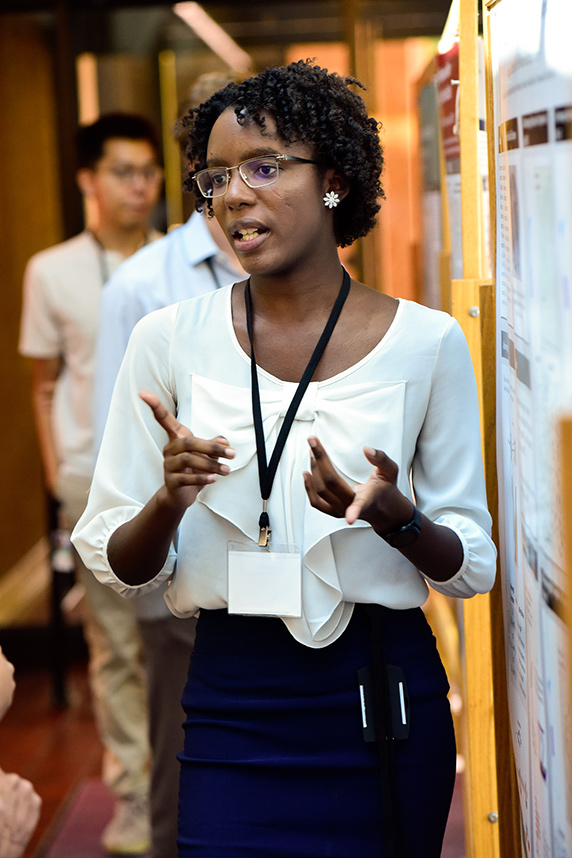 Gay was rated first place among NSCP participants. (Photo courtesy of Steve McCaw)
Gay was rated first place among NSCP participants. (Photo courtesy of Steve McCaw)Posters capture summer’s work
The following week, NIEHS interns had a larger venue for sharing their work — the Summer Poster Session.
Members of this year’s NIEHS Scholars Connect Program (NSCP) joined in presenting posters and competing for awards. The scholars will compete in their own “3-minute Elevator Pitch” in November and complete the program during the annual symposium in April.
Displays of research by 81 students filled the halls of the main campus building. Afterward, students, mentors, friends, and family gathered to await announcements of award winners and to enjoy the ice cream social presented by the students’ mentors.





